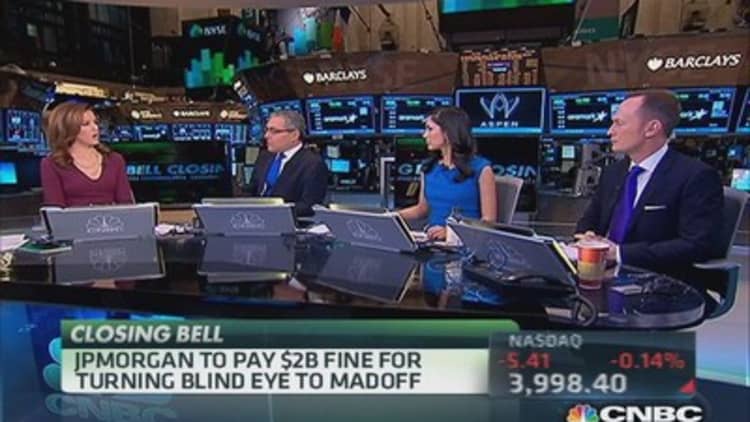Conscience, fear and the possibility of financial reward have spurred whistleblowers to offer information to regulators, raising the number of tip-offs to new highs.
The tough regulatory penalties emerging from the Libor scandal, as well as better incentives for whistleblowers, have encouraged more people to report potential wrongdoing to UK and US financial regulators, researchers have found.
As a result, in the year to October 31, the Financial Conduct Authority opened 72 percent more cases based on intelligence from whistleblowers than its predecessor did in the preceding 12 months. In April, the FCA took over supervision of the conduct of regulated financial companies from the Financial Services Authority.
(Read more: Whistleblowers shed light on VA abuse allegations)
This sudden increase was revealed following a Freedom of Information request made to the FCA by Kroll, the investigations company that produced the research. FCA figures show that the regulator launched 254 new cases on the back of whistleblowers' information between November 2012 and October 2013, compared with 148 cases a year earlier.
In addition, the figures show that 5,150 people contacted the FCA's whistleblower hotline during the period, compared with 3,813 in the 12 preceding months.
Whistleblowers from the UK also accounted for the highest proportion of overseas-based reports to the US Securities and Exchange Commission, Kroll found.
(Read more: A whistleblower wants to take away private equity's 'crack cocaine')
In the US, the SEC operates a bounty system for useful information and this year paid $14 million to a single whistleblower whose information led an enforcement action that recovered investors' funds. It was the highest amount ever paid under powers introduced in the Dodd-Frank Act, in the aftermath of the financial crisis.

In the UK, the Home Office is considering whether to introduce similar measures, while the Department of Business, Innovation and Skills has asked the FCA to research whether whistleblowing rewards work.
Separate figures have shown that the Libor-rigging scandal helped to fuel a sharp jump in the reports of suspected market manipulation.
More from the Financial Times
'Whistleblowing almost killed me'
Law 'failing to protect' whistleblowers
Regulators urged to improve protection for whistleblowers
FCA data reveal a 43 per cent increase in cases of suspected market manipulation in the 12 months to August 31, with 117 reports received, compared with 83 the year before.
These figures came from a Freedom of Information request made by Bovill, a regulatory consultancy, which said it was "no coincidence" that the jump came directly after the Barclays' Libor-rigging fine of £290 million in June 2012. Barclays was the first bank to settle allegations that it had attempted to manipulate the benchmark rate.
(Read more: SEC awards record $14 million to whistleblower)
"There is a pressure to be seen as 100 percent clean within this area," said Mark Spiers of Bovill. "Firms and individuals are increasingly alive to the fact that they have a duty to report any suspected misconduct and are well aware that they could face severe penalties if they don't."


